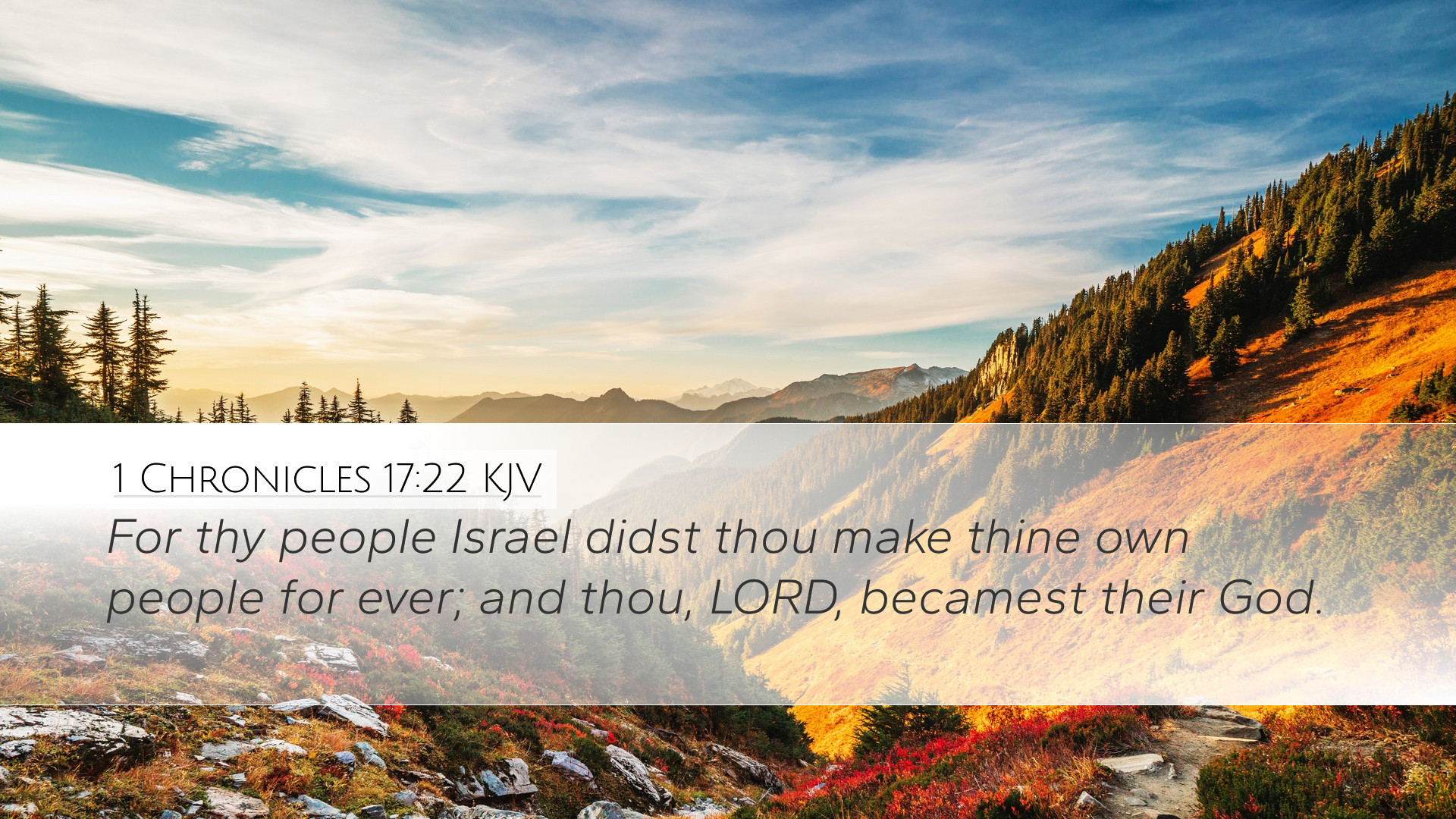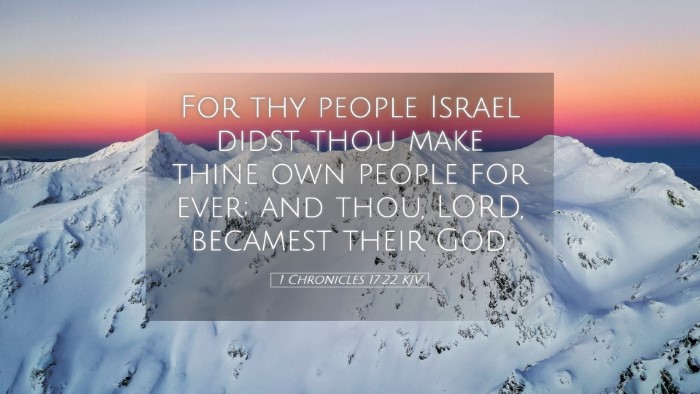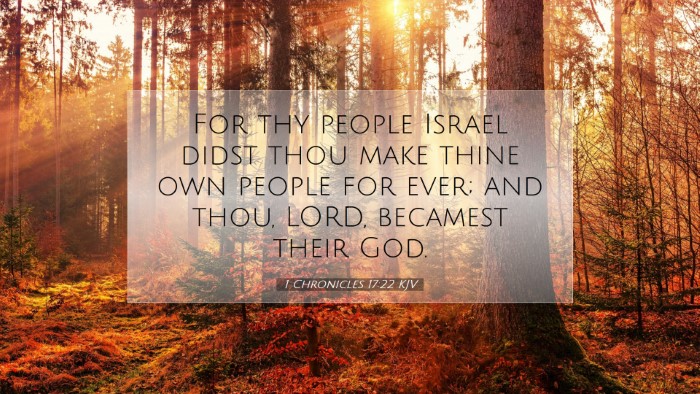Commentary on 1 Chronicles 17:22
Bible Verse: "For thy people Israel didst thou make thine own people for ever; and thou, Lord, becamest their God."
Introduction
This verse appears within the context of God's covenant with David, emphasizing the eternal relationship between God and Israel. Scholars and theologians have long examined the implications of God choosing Israel as His people, which not only underlines God's sovereignty but also His unending grace and mercy.
Historical Context
1 Chronicles aims to provide a historical account focusing on the reign of David, highlighting his significance as a leader and the establishment of Israel. Understanding the historical background of this narrative enriches the interpretation of this verse.
Matthew Henry's Commentary
Matthew Henry shares that this verse encapsulates the essence of God's choice of Israel. It delineates the covenant relationship characterized by divine selection. Henry emphasizes the "for ever" phrase, suggesting a timeless commitment from God toward His chosen people.
Albert Barnes' Insights
Albert Barnes underscores the implications of God making Israel "thine own people." He suggests that this designation conveys a deep, personal relationship grounded in love and loyalty. He also highlights the dual nature of God's relationship with Israel: He is not just their God but an everlasting guide and protector.
Adam Clarke's Perspectives
Adam Clarke provides an extensive reflection on the sovereignty of God exhibited through His choice of Israel. Clarke notes that this selection is based on God's purpose and free will. He offers a theological lens, reminding readers that God's covenant is a manifestation of His grace, not a response to merit.
Theological Implications
1 Chronicles 17:22 presents rich theological concepts necessary for understanding God's relationship with humanity. The notion of being designated as God's people carries profound significance.
Covenantal Relationship
The covenant established between God and Israel represents a binding agreement forged by divine promise and faithfulness. This verse speaks to the assurance that God remains committed to His people, inviting reflection on the broader implications of covenant theology.
Divine Sovereignty
God's election of Israel exemplifies His sovereignty over human affairs. As noted by the commentators, this election was not based on Israel's merit but purely on God's purpose and character. This aspect challenges readers to acknowledge God's plans and intentions beyond human understanding.
Pastoral Applications
This verse provides significant applications for pastors and church leaders today:
- Identity in Christ: Just as Israel was chosen by God, believers today are adopted into God's family through Christ. This identity shapes how individuals perceive themselves and their purpose in the community of faith.
- Call to Faithfulness: The eternal nature of God's relationship with His people calls for faithfulness in return. Churches and congregants are encouraged to build their lives on the foundational truth of God's unwavering commitment.
- Encouragement in Trials: Knowing that God has chosen them can provide comfort during difficult times. Pastors can remind their congregants that, like Israel, they are beloved and never abandoned.
Conclusion
1 Chronicles 17:22 illustrates the profound truth of God's relationship with His people. The insights from esteemed commentators such as Matthew Henry, Albert Barnes, and Adam Clarke deepen our understanding of this scripture. As believers meditate on this verse, they are reminded of their identity, the divine sovereignty that governs their lives, and the promise of unwavering love that transcends time.


